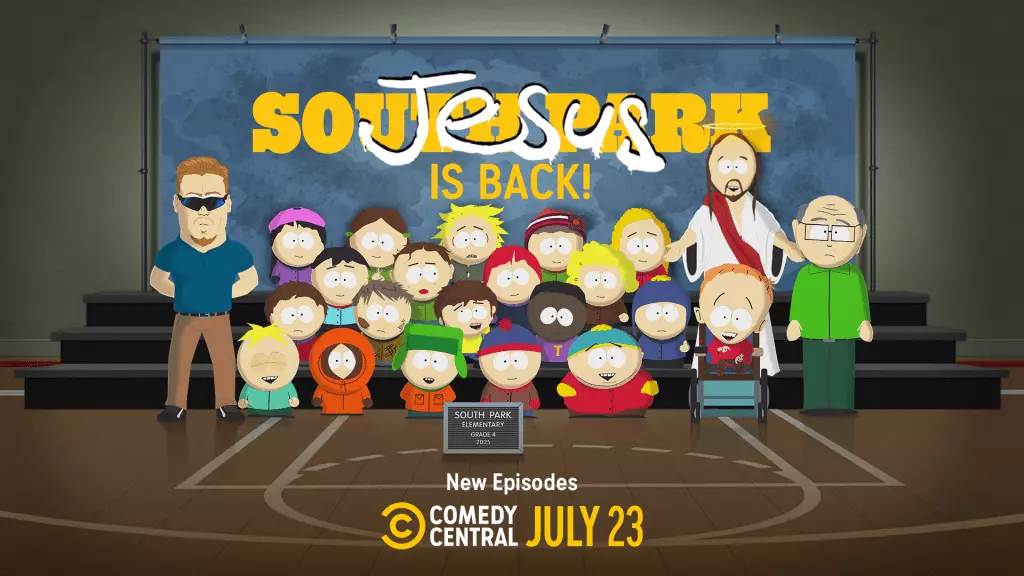After more than two years of anticipation, South Park fans found themselves disappointed when the Season 27 premiere was pushed back from its initial July 9 release date to July 23. Such delays, especially for a show as culturally significant and beloved as South Park, evoke not just impatience but also a sense of disillusionment. The prolonged wait reflects broader industry struggles—particularly in licensing and streaming rights—that threaten the very essence of what makes modern television appealing: accessibility and reliability. Fans, eager for fresh satire and political commentary, now have to grapple with the reality that even cherished shows can be pawns in corporate conflicts.
The Battle for Streaming Supremacy
A crucial element behind this delay is the ongoing tussle over South Park’s streaming rights—a high-stakes legal and commercial chess game. The show’s lucrative $500 million exclusive licensing deal with HBO Max recently expired, leaving a void that two major streaming giants, Warner Bros. Discovery and Netflix, seem eager to fill. Paramount Global, the backbone of South Park’s distribution, desires to host the show on its own platform, Paramount+. Despite initial assurances that South Park would premiere on Paramount+ in July, the show did not appear, fueling confusion and frustration among viewers.
What’s most revealing is the apparent shift away from exclusivity. The assumption that South Park would be locked into a single platform has been challenged by the legal threats and negotiations. Parker and Stone, the masterminds behind the series, are defending their rights through legal channels, emphasizing their desire to maintain control over their creation’s distribution. Their threat of litigation over interference and contractual terms indicates how fiercely creators are willing to fight for their vision in an era where streaming is king, but rights are often a murky battleground.
Behind the Curtain of Corporate Power
The drama extends beyond the fans’ viewing experience, revealing the often opaque choreography between corporate entities. Paramount’s goal to consolidate South Park on Paramount+ clashes with other bidders like Warner Bros. Discovery and Netflix. The legal letter sent by Parker and Stone exposes a behind-the-scenes struggle over licensing terms—specifically, whether new seasons should be subjected to short-term licenses or long-term rights. Their insistence on a 12-month window followed by exclusive rights for subsequent seasons underscores an ongoing desire to retain creative control and profitability.
This corporate wrangling exemplifies a larger industry trend: content creators are increasingly aware of their value and are willing to push back against platform encroachments. The creators’ insistence on safeguarding their rights highlights a shift in power dynamics, where stars and writers are no longer passive commodities but active negotiators, often resorting to legal measures to assert their interests. Meanwhile, the existing episodes continue their digital afterlife on HBO Max, reflecting a compromise amid negotiations. Fans witness not just a struggle over licensing but a fundamental question about the future of content ownership and distribution in digital age.
The Impact on Fans and the Industry’s Future
The ongoing drama leaves fans caught in the middle of a corporate tug-of-war. The absence of clarity regarding the streaming platform’s schedule, combined with the delayed premiere, generates frustration and skepticism about whether the show’s release is driven by creative or financial motives. This uncertainty threatens to erode the trust loyal viewers have placed in South Park’s consistency, challenging its reputation as a fixture of adaptive, timely satire.
From a broader perspective, this situation exemplifies how digital transformations have complicated the traditional television model. Content rights now hinge on multi-platform negotiations, legal battles, and strategic partnerships—a far cry from the relatively straightforward syndication days. As creators like Parker and Stone push for contractual protections, the industry may need to rethink how it values and distributes content, balancing commercial interests with the need for stability and audience engagement.
Ultimately, South Park’s delayed premiere is emblematic of an industry in flux, where creative vision often clashes with corporate interests. While legal disputes may temporarily hinder the show’s availability, the fierce protection of intellectual property signals a future where creators hold more leverage—if only some executives acknowledge that collaboration, not conflict, best serves long-term success.

